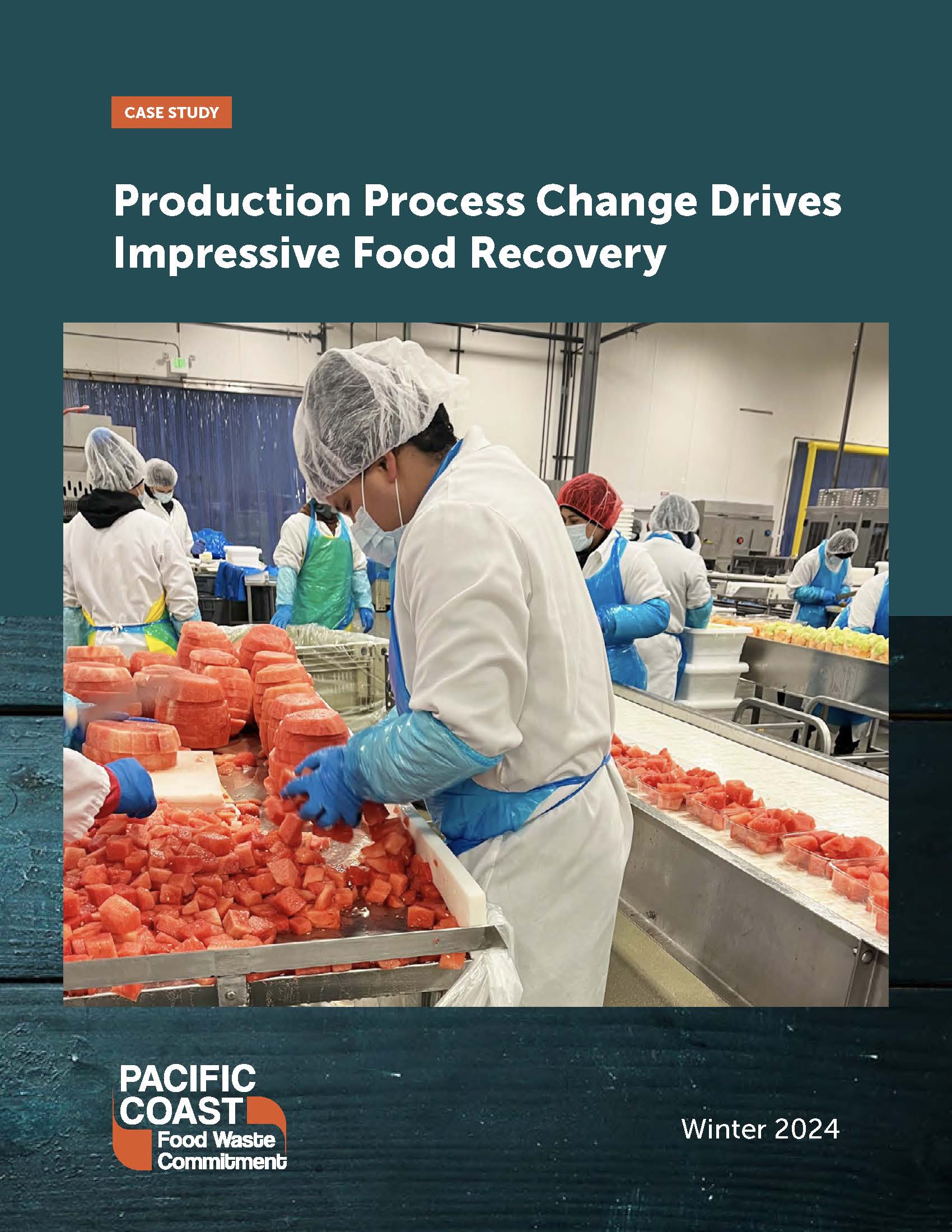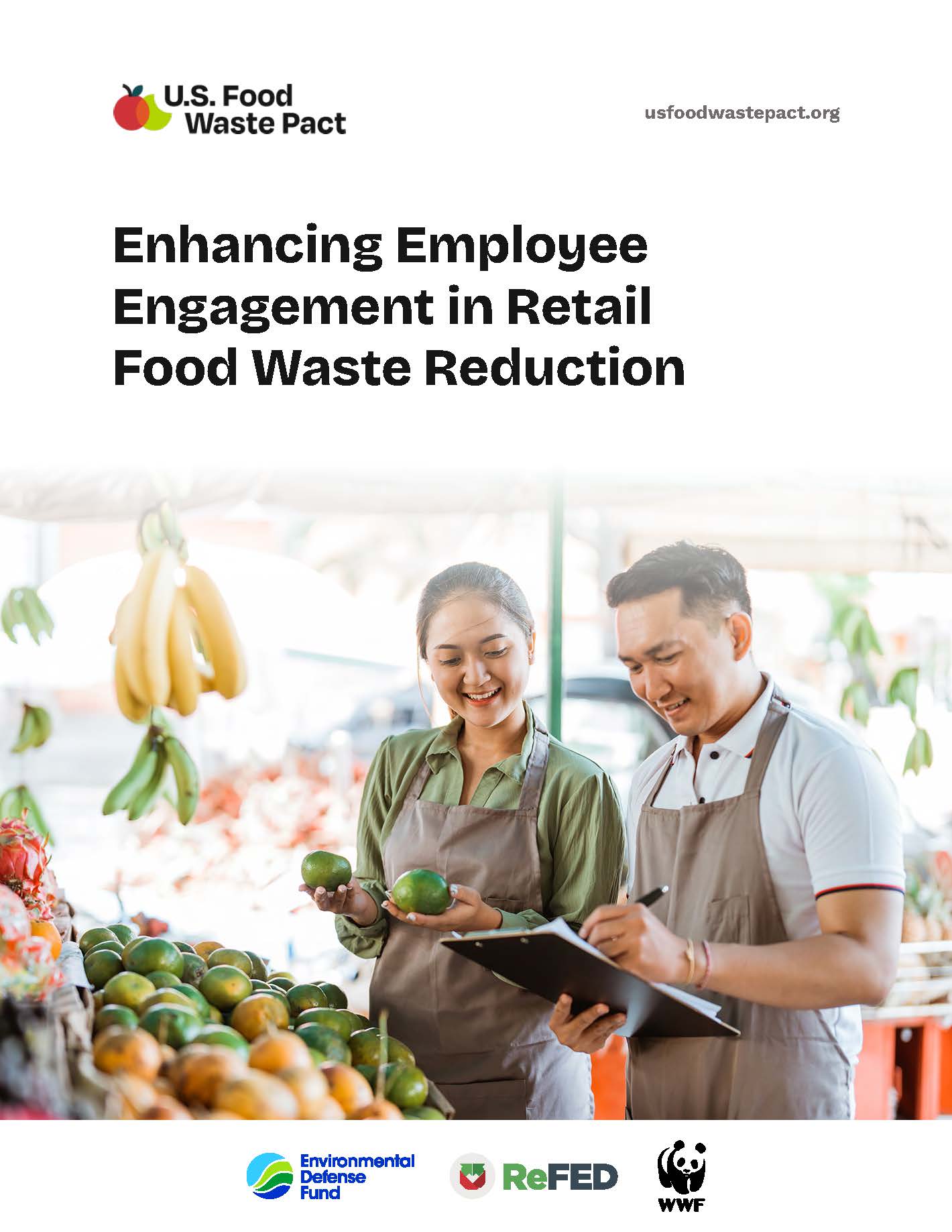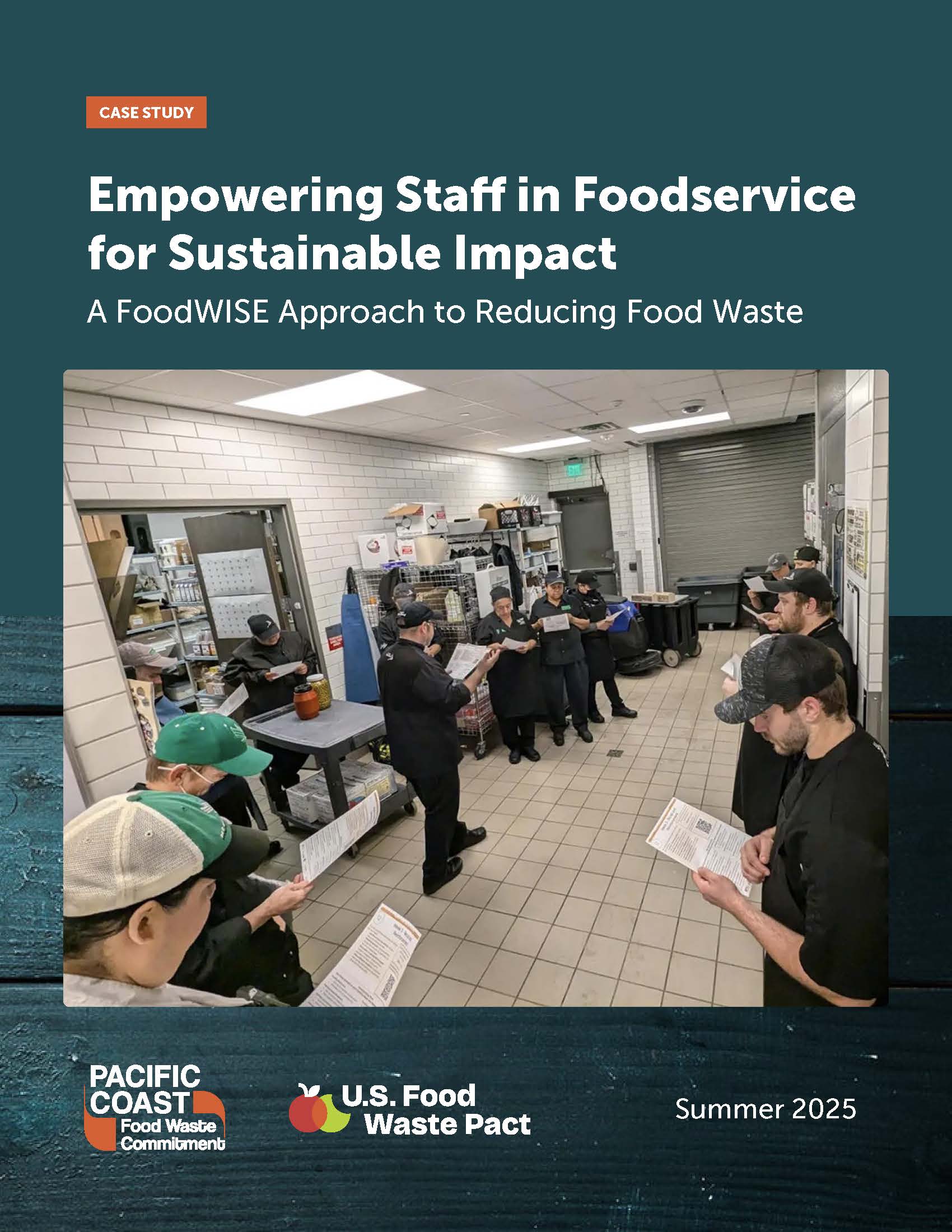
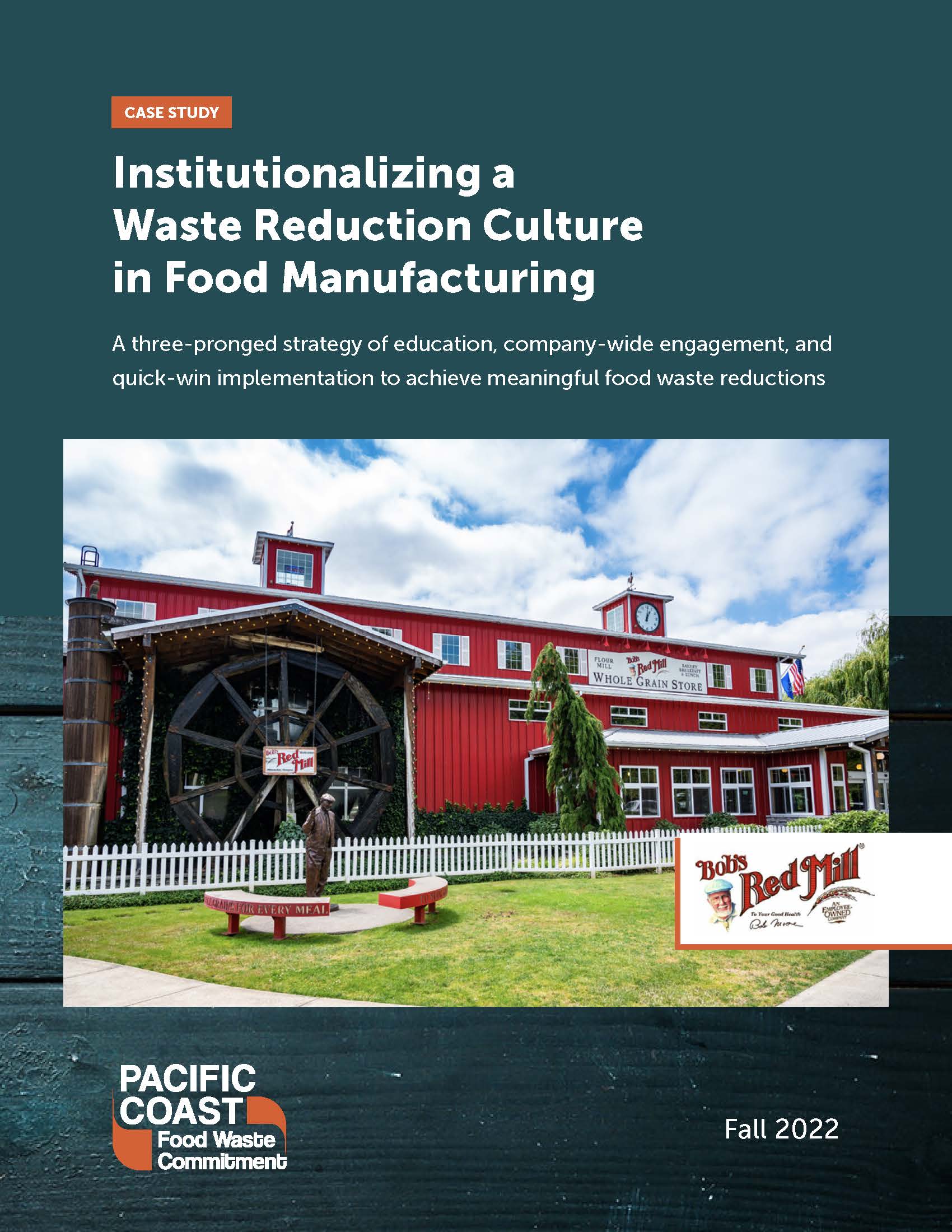
Case Study
Institutionalizing a Waste Reduction Culture in Food Manufacturing
October 15, 2022
In this case study from the Pacific Coast Food Waste Commitment, Bob's Red Mill piloted an employee engagement project that was delivered via a three-pronged strategy of education, company-wide engagement, and a Quick Win implementation to achieve meaningful food waste reductions.
As a result, the project had an immediate impact that included:
43% of company employee-owners becoming “very aware” of preventing food waste during the competition.
35% of viewers of the new food waste educational video learning how to better reduce food waste.
176 ideas submitted to the Food Waste Opportunity Register.
More than 70% reduction in food waste on the manufacturing line where the Quick Win idea was tested.
Hear from Bob’s Red Mill Leadership & Employee-Owners
The U.S. Food Waste Pact interviewed leadership and employee-owners at Bob’s Red Mill to collect first-hand perspectives on their employee engagement pilot and its impact on the organization and their commitment to reducing food loss and waste in their operations.
Interviewed Employees
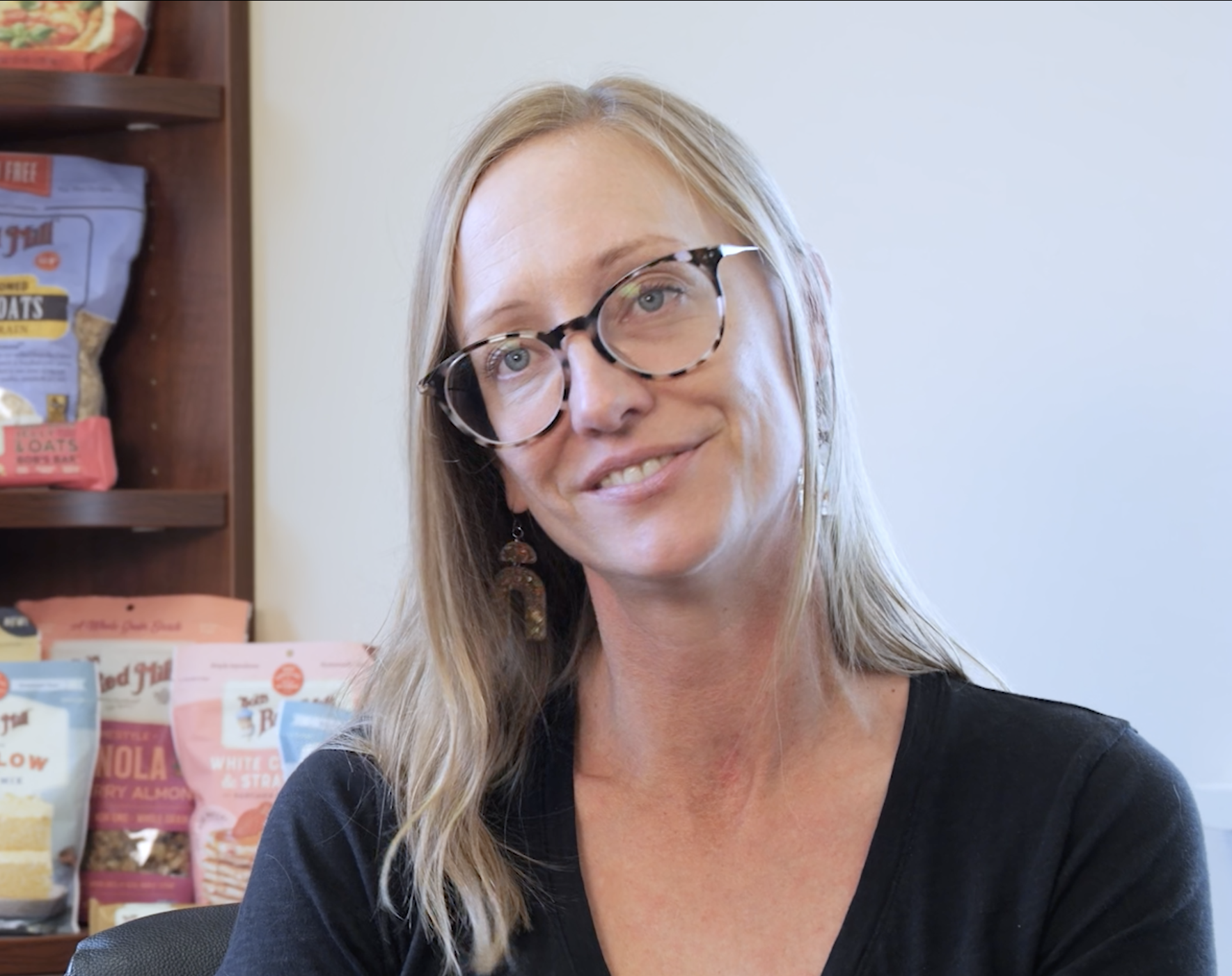
Julia Person
Sustainability Manager
“Doing the pilot really proved to us how easy this work can be.”

Kyle Geber
QA Material Handling Lead
“Getting to see the numbers and the feedback from [the pilot] is validating.”
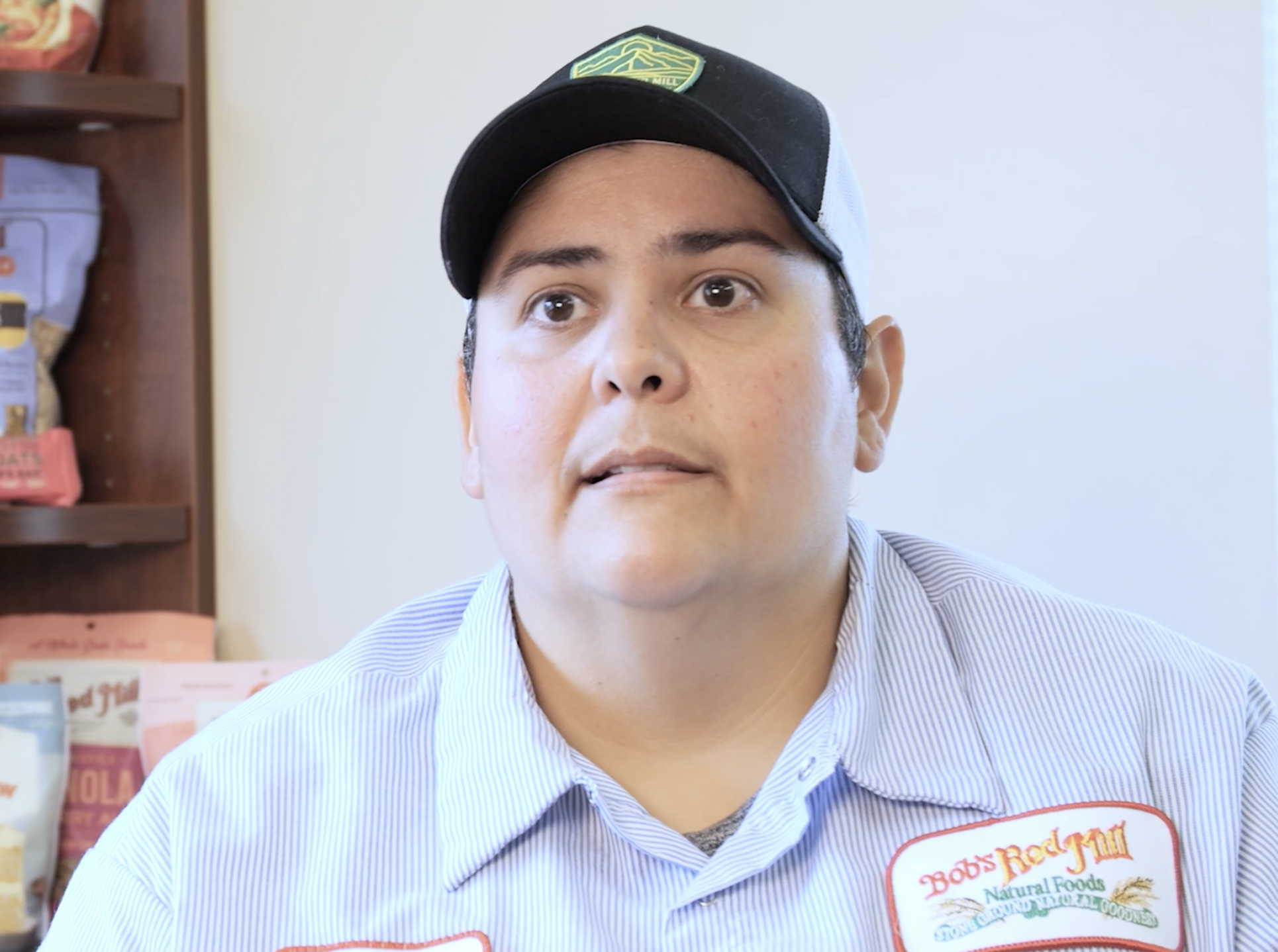
Jennifer Blasko
Machine Operator III
“The teamwork came into place and we made something happen from scratch.”
Similar Case Studies
These case studies detail the success of completed intervention projects and how successful an employee engagement strategy can be to reduce food loss and waste.
Employee Engagement:
A Key to Success
Engaging employees in food waste reduction initiatives creates a powerful, organization-wide commitment to sustainability. Employees are often closest to the daily operations where waste occurs and can identify inefficiencies or opportunities for improvement. Empowering them to take ownership of solutions transforms food waste reduction from a top-down mandate into a shared mission.

